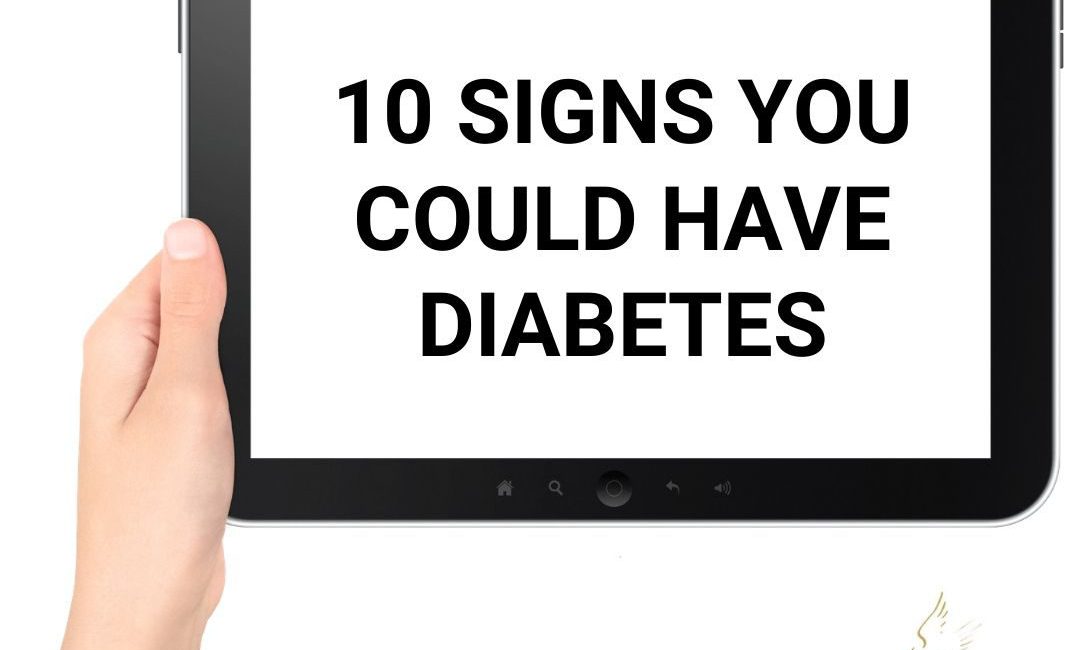More than 30 million Americans have diabetes, including 7.2 million that are undiagnosed. Additionally, 1.5 million Americans are newly diagnosed each year. Type 2 diabetes accounts for 90 to 95 percent of all diabetes cases. Diabetes has plenty of early signs, but some symptoms are subtle. Here are 10 subtle signs of diabetes:
1. Frequent urination
Most people urinate four to seven times in a day. If you are making more trips to the bathroom, especially waking multiple times at night to go, it may be a sign that your kidneys are working overtime to flush out excess sugar in your blood.
Keep in mind that drinking a lot of water, especially in the evening, may be why you’re urinating so often.
“If you are urinating more that one to two times overnight, try not drinking after 7 p.m. and not having caffeinated beverages after 5 p.m. If you’re still getting up multiple times to go the bathroom at night, that may be a sign that something else is going on,” says Katherine Bergamo RN, MSN, FNP-C, a nurse practitioner with the UNC Diabetes and Endocrinology Clinic.
Red Flag: Frequent trips to the bathroom even when you limit water intake and caffeine in the evening.
2. Excessive thirst
If you’re drinking more than 4 liters (about a gallon) per day and water isn’t quenching your thirst, this could be due to high blood sugar.
Red Flag: You feel thirsty after drinking water.
3. Extreme hunger
When blood sugar isn’t properly regulated it sends conflicting messages to your brain about the need for food.
Red Flag: You find yourself eating more times a day than usual or experience extreme hunger even after a meal.
4. Weakness/fatigue
When sugar cannot get into your cells to energize them, your kidneys have to work overtime to remove the extra sugar. This can leave feeling weak and fatigued.
“If you are feeling like you can’t keep your eyes open after a meal, it might be a sign that your body is struggling with high blood sugar.”
Red Flag: You find yourself too weak to do everyday activities you were able to do with ease before or you feel exhausted after eating a meal.
5. Pins and needles
Extra sugar in the blood can damage nerve-endings, especially those nerves located farthest from the spinal cord such as your feet.
Red Flag: If you feel a tingling or numbness that feels like burning in your feet when you wake up.
6. Blurry vision
Sugar lingering in the blood can cause swelling in the lens in the eye making it difficult to focus your eyes. When your sugar is really high, your vision blurs, but when your sugar drops down again, it clears.
Red Flag: If road signs, menus, books or computer screens come in and out of focus at different times during the day.
7. Itchy skin
Poor circulation paired with the loss of fluids (from the frequent urination) can cause the skin to dry out. Dry skin leads to itchy skin.
Red Flag: If you still notice yourself itching more than usual and have noticeably dry skin even after increasing your water intake.
8. Slow healing wounds and increased skin infections
Lingering sugar in the blood wreaks havoc on veins and arteries disrupting circulation. Without proper blood flow, it takes longer for cuts and bruises to heal, and you are more prone to skin infections.
Red Flag: Paper cuts, bumps and bruises take more than a few days to go away, cuts scab over repeatedly or wounds that last weeks to months.
9. Volatile moods
Riding the roller coaster of unstable blood sugar may cause a short temper. High blood sugar also mimics symptoms of depression such as low energy drive and wanting to stay in bed.
Red Flag: You are noticeably grumpy or irritable, family or friends comment on your unusual demeanor, or you have depression-mimicking symptoms.
10. Urinary tract infections and yeast infections
High sugar levels within the urine are a breeding ground for bacteria and yeast near the genitalia. Urinary tract infections (UTI) come with a burning sensation during urination and cloudy, dark or off-smelling urine. Yeast infections come with itching, burning and discharge. People with diabetes are twice as likely to suffer from these types of infections.
Red Flag: Regularly occurring UTIs or yeast infections.
Modify Your Diet Before Calling Your Doctor
Bergamo says if you’re having some of these subtle symptoms try a low-carb diet of protein and green leafy vegetables. Avoid sugary drinks and drink at least 2 liters of water for a few days to see if these symptoms get better.
“Subtle symptoms could be just that you’re eating too many carbs and your body can’t handle it,” Bergamo says. “It doesn’t necessarily mean you have diabetes, but it’s a wake-up call that maybe you’re headed that way.”
If you have any symptoms that are frightening such as sudden numbness, weakness or chest pains, call your doctor immediately.

